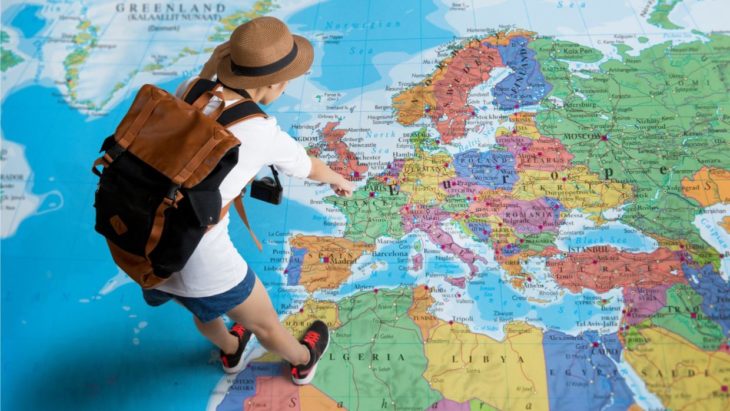Ah, beautiful Europe. It is packed with magnificent countries to visit, and endless cities to explore. From the gondola waterways of Venice to the beautiful Eiffel tower in Pisa, to the extraordinary fortress in Belgrade. There is something for everyone to enjoy and see. However, there might be one problem when it comes to visiting Europe. In the height of the summer months, these famous cities become a bit of a nightmare to visit. Crowded monuments and attractions, price spikes, and long queues of people can be a bit overwhelming. Hence, there are some things that you might want to know (and avoid) if you are planning on visiting Europe.
Here is a list of tips for people who are planning to visit Europe:
1. Check the visa requirements – one of the first things to check is the visa requirements for the country you are planning on visiting. It would be a real nightmare if you were denied entry into the country simply because you do not have a tourist visa. While most of the countries in Europe do not require a visa for shorter visits, it is best if you check. A quick search online will give you the answer if you need a visa or not.

Img source: jingtravel.com
Also, you could try websites like ETIAS which is a simple, stress-free solution for short term travels throughout the Schengen Zone (which is a group of 26 countries that do not require a visa to visit). With an approved ETIAS, you will be able to visit the area for up to 90 days. All you need in order to apply is a valid passport and a completed ETIAS application form. Since it is a visa waiver, you will not have to go through the complex application process for a European visa. It also does not require an interview at an embassy or consulate. It takes a few minutes to get approval once you have applied and the maximum time that you would have to wait is 4 days.
2. Travel in the offseason – while you might want to swim in the Mediterranean waters during summer, so does the rest of tourists and locals as well. This causes beaches to become overcrowded, as well as long queues at attractions. If you want to avoid crowds and crowds of people, you might consider traveling offseason. This will not only help you avoid crowds, but it will also help you save tons of money on tickets, tours, and accommodations.
3. Use budget airlines – there are more than a dozen airline companies in Europe, and you will be able to fly almost anywhere on the continent for a cheaper price. Air travel will often be cheaper than train tickets, and it will also be more comfortable and quick to get to the destination you want. Keep in mind to check the additional fees and taxes that are usually not included in the overall prices, and avoid bringing a lot of luggage with you. Every company has a different rule for your luggage, so check it before your flight.

Img source: expresstravelcorp.com
4. Make reservations in advance – if you make reservations in advance, you will make sure that you have secured a place in a hotel, as well as various tours that you would like to join. Also, booking airplane tickets, train tickets, hotels, and tours in advance could help you save a lot of money.
5. Do not forget your comfortable shoes at home – one of the best ways to explore the wonders of European cities is to walk during your vacation. Hence, having a good pair of comfortable shoes will help you stay on your feet longer.
6. Get off the usual tourist path – of course, you will want to see all the popular attractions in a place, however, you should also discover and visit the hidden wonders that you can find in any city in Europe.
Conclusion
Europe is a place of history, different cultures and traditions, languages, amazing food, and even more amazing people. Do not forget to get lost in every city you visit, who knows what wonders you might find in them?
